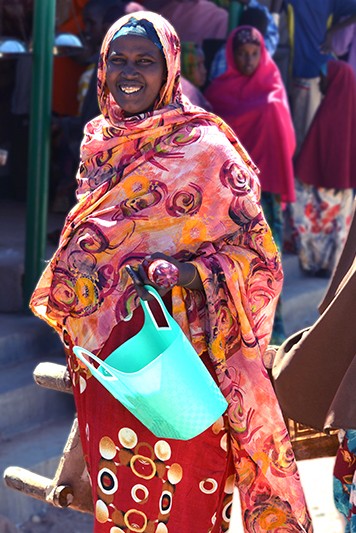
With a large family depending on her earnings, Fatuma Suleban has struggled. “I used to sell meat on the street – with no shade,” she says. “I would often move around all day in search customers.”
In Somalia, USAID supports activities that communities select and implement with local authorities for quick-impact progress toward stabilization.
When USAID brought together government and community representatives from Aynabo, the town in central Somaliland where Suleban lives, the group prioritized market rehabilitation and public sanitation.
At a community dialogue event, which USAID sponsored to improve the relationship between the community and the government, the then-mayor promised to continue improving services. “These new services are a great achievement, and proves our commitment to serve our people,” Khalif Ismail Saleeban said.
Suleban is among 45 women who will directly benefit from market construction. At the dialogue, they received stools and baskets to support their work. “Now I have a place where my customers can visit and my daily sales have increased,” says Suleban. “I want to thank my government for assisting me.”
In Aynabo, 3,720 people will also benefit from an $80,000 investment to improve government service delivery and increase confidence in governance. The funding, among other things, will pay for a garbage truck and a new community hall.
USAID is implementing over 400 quick-impact projects worth approximately $31 million, in close partnership with Somali local or federal government, civil society and community members. Somali communities decide what projects will be implemented and supervise progress from bidding to implementation to final evaluations.







Comment
Make a general inquiry or suggest an improvement.